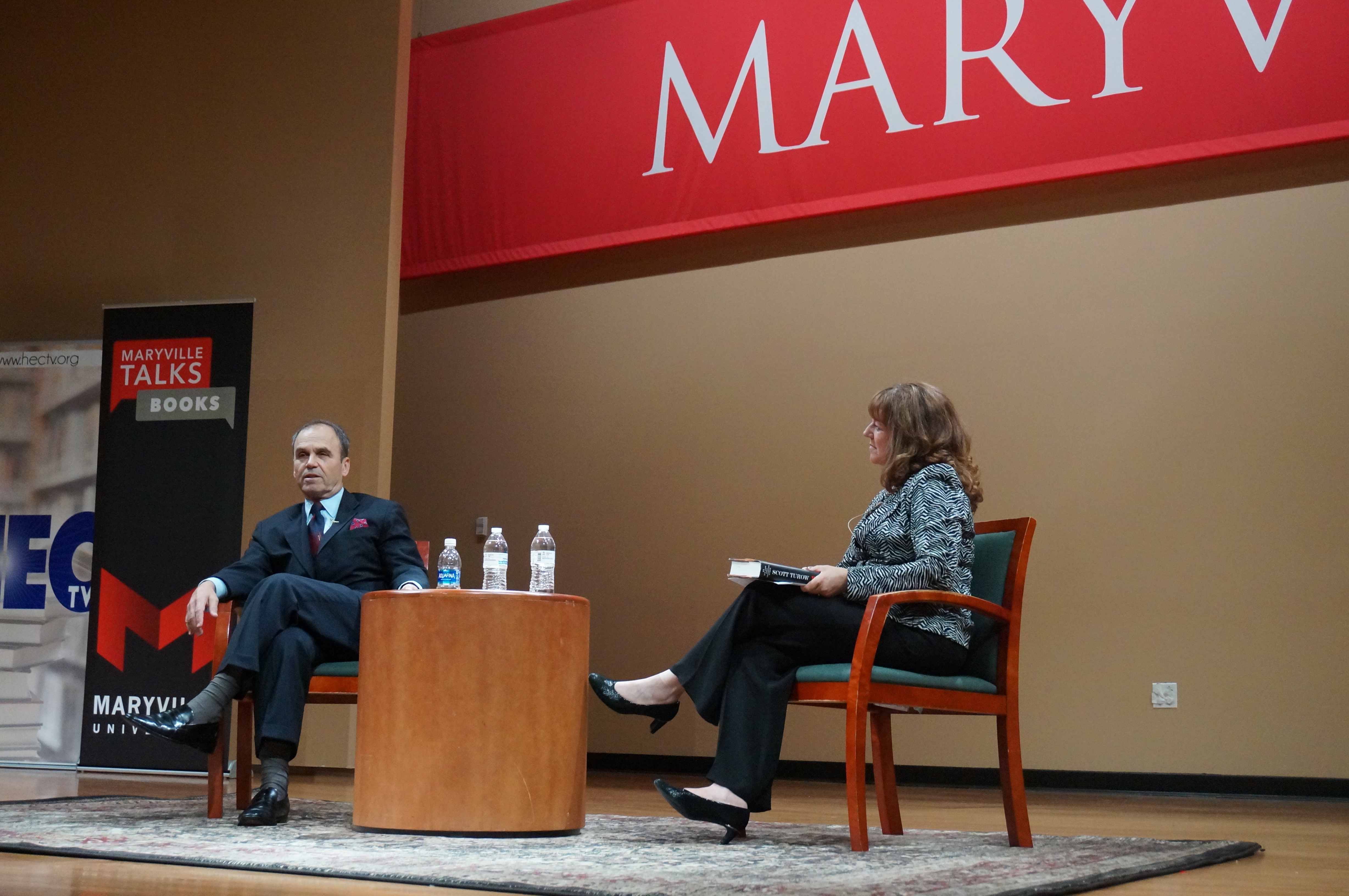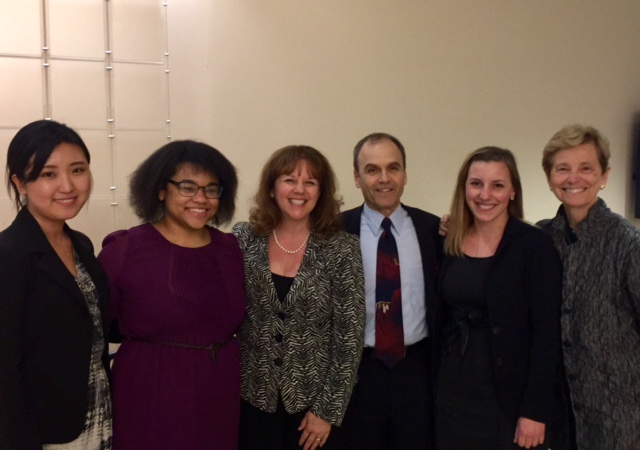By: Emily Brewster
On Tuesday, May 23, Maryville University hosted legal thriller writer Scott Turow (author of One L and Presumed Innocent among others) for its speaker series to discuss his new novel, Testimony. As part of the discussion, Harris Institute Director Leila Sadat interviewed Mr. Turow about the novel’s characters, his research process and selection of settings, and why he chose to write about the International Criminal Court, which is a first for the author.

Harris Institute Director Leila Sadat and lawyer and author Scott Turow discuss Testimony at Maryville University on May 25, 2017
Testimony follows a U.S. lawyer turned International Criminal Court prosecutor, Bill Ten Boom, as he investigates an alleged 2004 massacre of an entire camp of 400 Roma in Bosnia. Beginning with the testimony of a lone survivor, the investigation spirals through evidentiary complications and surprises as Boom attempts to determine who was responsible, with possible suspects including U.S. troops based near the former camp and the paramilitary forces of a Serbian leader named Kajevic (whose crimes and evasiveness parallel the real-life Karadžić prosecuted by the ICTY). Through his relationships with a diverse group of characters, readers experience Boom’s journey to seek justice while navigating complex international political and legal issues. Testimony provides readers with a look into the investigation process and bureaucracy of the ICC and the historically contentious relationship between the Court and the American government.
Despite playing a substantial role in the Rome Conference negotiations and the Court’s creation, the United States has had a troubled relationship with the Court in many ways, with some previous administrations refusing to support the Court and trying to undermine it, and others pursuing more constructive engagement with the Court. During Tuesday’s discussion, Turow described his own belief in the Court’s importance and his hope that the United States would engage further with the Court (and eventually join) in the future instead of undermining its work. He chose to set the case in Testimony in Bosnia specifically so that he could explore the United States’ relationship with the Court, since the U.S. operated in the country as part of a NATO stabilization force through 2004 and maintained a smaller presence afterwards.

Scott Turow with WashULaw faculty and students
Turow revealed that he acquired the idea for Testimony while visiting The Hague in 2000 from a group of American lawyers working in international justice. On Tuesday, Turow described The Hague as a “center of idealism,” evident by the large number of international NGOs, tribunals, and government entities there, which makes it “a fine place to do justice, which is an idealistic enterprise at its core.” His interest in the Roma stemmed from an interaction with a group of Roma in a Chicago hospital and a desire to develop a better understanding of the often discriminated against people. As he further researched the Bosnian War, Turow was surprised at the atrocities committed against the Roma, an issue that he tries to bring to light in Testimony.
Although Turow stated that the ICC as an institution is fragile and has its problems (with “many of American making”), his work researching Testimony has convinced him that the accountability role played by the ICC is necessary to carry out justice, as unfortunately, the Court exists and remains relevant because the world recognizes that war is not going away anytime soon. When dealing with mass atrocities, however, Turow notes that “justice in itself is a good,” as societies need to know that great wrongs will be righted in order to move forward without the longstanding grievances apparent in the Balkans, and therefore “doing justice is indispensable to bringing about peace.” That sentiment is certainly echoed in the purposes of the International Criminal Court.
